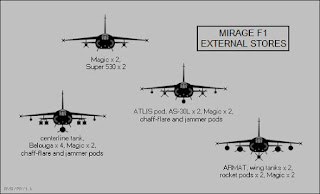.
The naval-minded people love to pretend that maritime trade is a bigger thing than it is. They usually use the metric of % world trade in tonnage, while the rest of the world thinks of trade in terms of value (which shows the importance of services and air freight).
Now there's some piracy (considering the Houthi forces as non-state actors) against Red Sea traffic.
Personally I don't mind the impoverished Yemen having some couple thousand brand-new cars, but such piracy does make ship operators shy away from that route.
I don't advocate that navies from faraway places should police the sea there, but every country is free to waste its money on that, of course. The most obvious navy responsible for the Red Sea is the Egyptian Navy, which nominally has 20 frigates and corvettes in service and the Red Sea is their backyard. The second most-obvious navy is the Saudi one.
Egypt should be especially motivated to secure the Red Sea because an impeded Red Sea maritime traffic means reduced Suez Canal transit fees (FY 2022/3: USD 8.8 bn) for Egypt.
But there's the pretence that European wealth depends on the Suez Canal. Just how important is it really to us?
The short term damage by a partially or entirely blocked Suez Canal is difficult to estimate, but estimation becomes much easier when you ignore transitory effects, as we should in regard to strategymaking and grand strategy.
8.8 bn $ (about 8 bn €) - why don't the Egyptians levy greater transit fees?*
Presume the Suez Canal's benefit to the shipping companies is 100 bn $ per year. How much of that would the Egyptians skim off through transit fees? I say no less than 60%, no more than 90%. Less than 60% would be stupid, as they could enrich themselves much more without provoking too much diversion of traffic and more than 90% would too much risk to do exactly that in the long term.
I'm going to argue here that the Suez Canal is not a terribly big deal in the long term for our wealth in Europe, so I'm going to give the other side of the argument the benefit of the doubt and assume that the Egyptians only skim off 60% of the benefit.
Now if 8.8 bn $ is 60%, then 100% is 14.67 bn $. With 8.8 bn $ of the benefit going to Egypt, that leaves 5.87 bn $ benefit for the rest of the world (the remaining 40%).
Now again I will give benefit of the doubt to the opposing side of the argument and pretend that all of those 5.87 bn $ benefit are to Europeans, not to their overseas trade partners.
The GDP of the European Union is 16.75 trillion $ and the GDP of the United Kingdom is 3.09 trillion $. That's a combined GDP (approximating European GDP, but not all of it) of 19.84 trillion $.
5.87 bn $ is about 0.03 % of European GDP.
Germany's GDP is 4.08 trillion $, 20.56% of the GDP mentioned above for EU+UK. So about 1.2 billion $ share of estimated Suez canal net benefit fall on Germany (the figure would be a bit higher if we use share of goods trade instead of share of GDP). 1.2 bn $ per annum is not a big figure for Germany. It's again about 0.03% of GDP.
There are 448 million people in the EU and 67 million in the UK. 5.87 bn $ distributed among 515 million people is 11.40 $ per capita. Basically, one meal at MacDonald's.
I dare say the Suez Canal is not of great importance to Europeans in the long term. The short term transitory effects of its (hypothetical) total blockade would be troublesome, but its importance drowns in statistical noise in the long term.
One might consider us responsible for anti-piracy work in the Red Sea IF there wasn't Egypt. But there IS Egypt, which is the main beneficiary of the Suez Canal and thus of Red Sea maritime traffic. Yet Westerners are so Western-centric and so eager to play with their own military toys that I haven't even seen anyone else mentioning that Egypt should secure Red Sea trade so far.
And I don't give a shit about Houthis pretending to fight Israel and Arabs trying to avoid looking like they defend Israel. The Houthis are attacking ships rather indiscriminately and the Saudis have bombed them for eight years already. If the Egyptian tyrant insists on pretence over hard cash, then Egypt deserves to lose billions of dollars, and media should make sure Egyptians understand this. Fuck them, there's absolutely no reason why Westerners should clean up the mess caused by foreign people playing dumb. We got enough of a mess to clean up in topics where we're actually at fault.
Sometimes it's empowering to say "So what?" and to shrug shoulders at miniscule economic losses rather than to allow foreigners and your own irrationally to drive your actions.
Next time you see economic interests used as motivation for military action try to look up how big said economic interest is. The supposed oil fields around the Falkland islands used as part of the reasoning for reconquest of the islands in 1982 are still not pumping any oil.
S O
defence_and_freedom@gmx.de
*: The transit fees are set to rise by 5 to 15% in 2024, but that doesn't change the overall argumentation here substantially. It doesn't mean a 5 to 15% increase in transit fee revenue anyway, for some shipping would be diverted on cost grounds. Future fees should not be compared to past GDP, so I simply used the most recent figures available.
P.S.: Everytime I wrote "Red Sea" I meant the Gulf of Aden as well, of course.
.








